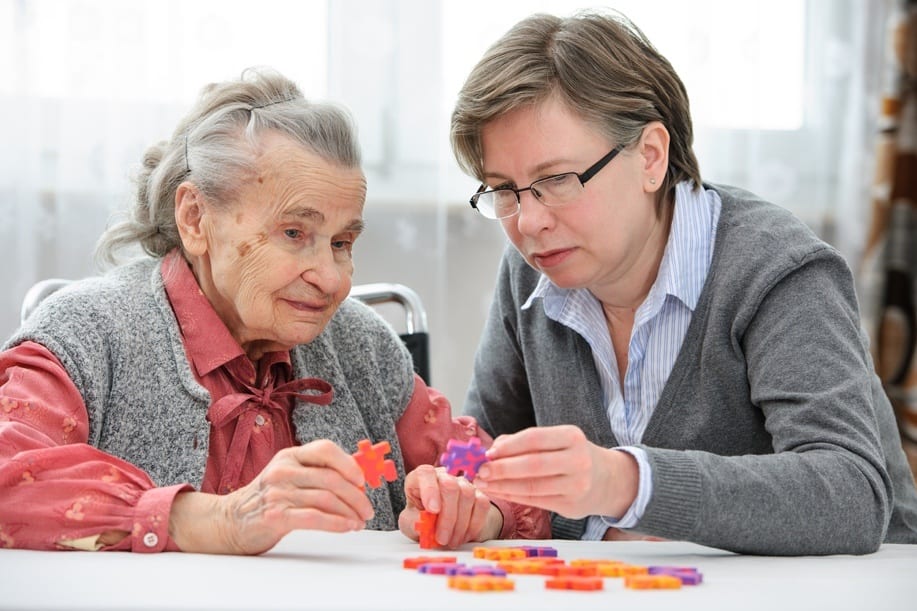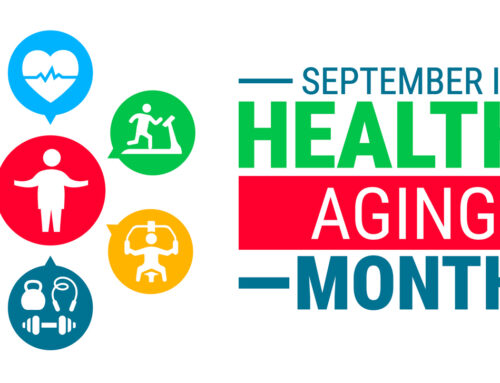The importance of warmth, patience, and ongoing emotional memory
Dementia is an inclusive term for a number of conditions which can affect the brain and body. It can manifest in one of ten different forms. The most common (and generally known) form of dementia is Alzheimer’s Disease, from which more than 5 million Americans suffer. Alzheimer’s also has the perception of exclusively being an “old person’s disease,” when in reality, one does not need to be elderly to suffer from it. Five percent of the overall number of sufferers are affected by the early onset of dementia.
The skills for caring for a loved one affected by this condition are something many more of us will have to learn in the coming years. By 2060, it’s estimated that Alzheimer’s figures will more than double. Here are constructive, compassionate and supportive ways to speak to your loved one which can make a real positive difference.
Speaking with (and without) words
The best place to begin is by acknowledging the power of the oldest form of human communication: body language.
It’s an easy thing to become demoralized when your loved one has dementia. A sense of futility may take hold, forcing you to question whether it’s even worth speaking or visiting. Dementia’s effects on memory may seem to render any effort you make pointless and forgettable. It’s very important to remember, however, that communicating is not limited only to verbal forms.
We can speak with our eyes, the tone of our voice, with our hands, or through a hug. If we do so warmly and patiently, it has a positive emotional effect for dementia patients that can outlast the transience of linguistic memory. The research is uplifting for anyone caring for a dementia sufferer; it shows that their efforts can make a difference.
In light of this research, it’s important to bear something else in mind. If we allow frustration, anger or resentment to affect how we speak to dementia sufferers, it could have an inverse effect. Our loved ones may forget the negative words, but the feelings of unhappiness or upset could linger on. Without linguistic memory functioning as it should, these inexplicable feelings of negativity won’t have any explanation for a dementia sufferer.
Some helpful ideas to speak about
People with dementia react productively to memory-based interactions. Engage them in conversation about fond memories and happy occurrences in their life. The use of photo albums, family recordings or favorite television and radio shows are a good way to stimulate memory and good feelings. The more visual you can make your conversation, the better.
It’s also a good idea to consider playing memory games. These are particularly effective in the earlier stages of memory impairment. They can be played with ease on cell phones and other electronic devices, but any form of game which involves the memory can have positive effects. Researchers also believe that music your loved one is known to enjoy may trigger memories to fuel helpful conversations.
How to speak to a loved one in distress
Paying attention to your loved one’s emotions when they’re recalling something is key. If they’re happy and comfortable, that’s a state both of you can enjoy. Any signs of discomfort or distress should be heeded and acted upon sensitively.
If they become confused, upset or angry, then it’s natural for us to become tender in our approach. In doing so, it’s important to steer the conversation away from troubling things and to ask what is upsetting them. The skill here is not to treat your loved one in a manner which may seem condescending. Well-intentioned words may veer into elderspeak; a mode of speech which can sometimes do more harm than good.
Patience is necessary when your loved one is upset. Ask the questions you feel are necessary but don’t rush them for answers. Give them time and space to express themselves. This informative dementia resource provides some valuable tip on recognizing non-verbal cues. These are things to watch out for if your loved one is too upset to form words.
Can dementia be reversed?
It’s good to know that some forms of dementia can be reversed, while other factors may be causing symptoms which are merely similar to dementia. A person’s diet may be lacking vitamins and minerals, or an individual may have underlying metabolic, hormonal, or heart issues. It’s also comforting to remember that medical research in treating dementia is always moving forward.
If you and your loved are in the first stages of finding out about possible dementia, your physician will be able to tell you if there is potential for control or possible recovery.
Further resources
If you’re concerned your loved one may be showing signs of the condition (or would simply like to know more about it), this 8-page resource helps identify the top ten symptoms. Floridians can also find guidance from the Alzheimer’s Association here. If you intend to consult a medical professional, then this handy checklist and brief questionnaire will help you prepare for a visit to your doctor.
When our loved ones have any kind of medical issue, positivity is always a priority. This goes doubly when speaking to people with dementia. Its effects on the brain and memory may indeed mean that our words to them fade, but the positive feelings we can provide may not. Careful use of reminiscence, interactive activities and attention to emotional state gives you the tools to do everything you can.
Since 2000, it has been FirstLantic’s privilege to provide the highest caliber of service and attention to our clients in Broward, Palm Beach, St. Lucie, Indian River, and Martin Counties. If you or your loved one are looking for home health care in South Florida, whether hourly, daily, or overnight, call us 24 hours a day, seven days a week at 877-618-3624 or complete our online contact form.
Topics: Speak to a Loved One with Dementia
Written by Bart Delsing
 AVAILABLE 24 HOURS A DAY/7 DAYS A WEEK
AVAILABLE 24 HOURS A DAY/7 DAYS A WEEK Careers
Careers







